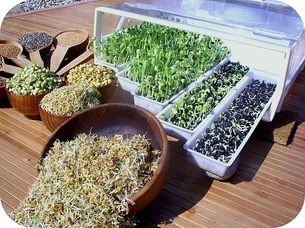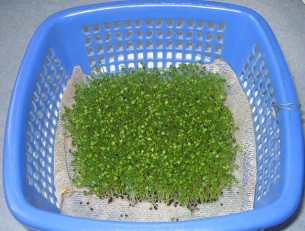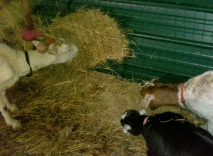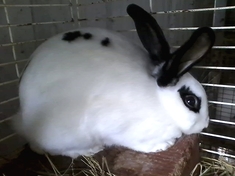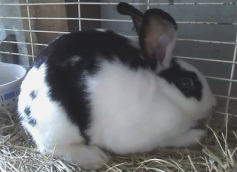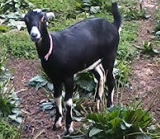
Last year was the first year my entire herd has ever really struggled with high worm loads. I had a few individual goats with issues, but never the entire herd as a whole. The weather last year however created the perfect conditions for parasites to flourish. My vet told me that safeguard could indeed be used, but it had to be given at a much higher dose than how it is labeled, and had to be given for 3-4 consecutive days. I tested that theory last year with two goats, and before/after fecal exams showed that it did work quite well.
Recently, one of my does became ill and needed deworming. Since safeguard is the mildest chemical dewormer available, I decided to try that first in hopes that it would do the job without causing more stress to her already stressed body. This time, the fecal exam gave me vastly different results. After a 4 day regimen, the slide was still so full of worm eggs that someone who didn't know better would look at it and think the doe had never been dewormed. Despite my best efforts, I lost the doe. I'm kicking myself for it too because I am convinced that if I had chosen a different dewormer to start with, she would have improved.
If Safeguard works for your herd, I am happy for you. I however can no longer recommend it because its effectiveness is too unpredictable. It might work, or you might be wasting your money and risking your goats lives. I personally will never purchase it again.
None of the information contained on this site is intended to diagnose, treat, or otherwise substitute for the care and advice from a qualified human or animal medical professional. Please consult the trusted medical professional of your choice before using any of the information contained on this site.



